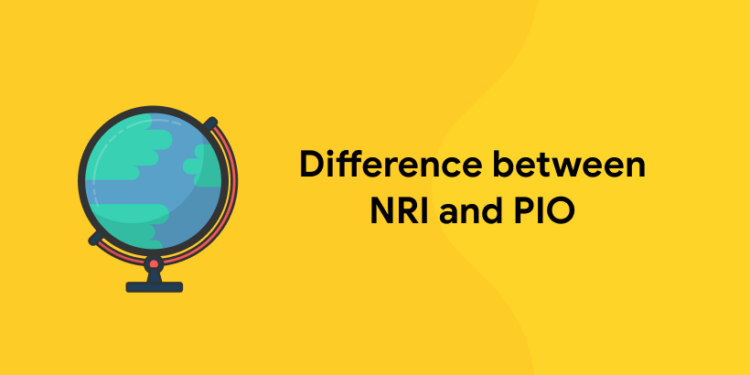Table of Contents
You might have heard about the term NRI most of the time. The term is very much pampered and misinterpreted by the film and media persons to synonymously use it for cash making Indian diaspora. When it comes to the perspective of competitive examinations like UPSC and PSC one needs to get a full concept over the NRI and PIO. The terms associated with the citizenship concept of Indian constitution and Citizenship Act of 1955 and other relevant acts of the same cause. In short , understanding the NRI and PIO is to understand the sum and substance of the citizenship concept of India. Let us look into the details and differences between NRI which stands for the non-resident Indian and PIO which stands for the persons of Indian origin through this blog.
Subscribe to Entri App for more Current Affairs Note and General Knowledge Concept Elaboration
NRI and PIO- Citizenship Overview
Non-Resident Indian NRI and Persons of Indian Origin PIO are terms related to citizenship. Citizenship is the qualification for the full enjoyment of the political rights of a country. In India citizens are eligible for certain special fundamental rights compared to non-citizens. Citizenship can be obtained through birth, descent, naturalization and registration. The constitution in its article 5 to 11 says about citizenship. The constitution empowers the central government to enact laws on citizenship. The recent citizenship amendment act CAA was very controversial in many perspectives.
Non-Resident Indian (NRI)
1: Who was the first woman President of India?
The NRI or Non-Resident Indian basically stands for citizens who are not residing inside the country. They may be residing in another country for work or business. The important criteria for being a NRI is that they have not acquired the citizenship of another country. They are Indian citizens. The citizenship amendment act does not define the Non-Resident Indian. But the Income Tax Act for the purpose of taxation defines the citizens into three categories:
- Resident
- Ordinary Resident
- Non-Resident Indian
The Income Tax Act 19661, section 6 says who is the resident of India. if he qualifies any of the following conditions, he can be considered as a resident of India.
- That, in the previous year the individual was in India for a period or periods amounting to 182 days or more; OR
- In the 4 years immediately preceding the previous year, the individual was in India for 365 days or more and 60 or more during the previous year.
Subscribe to Entri App for more Current Affairs Note and General Knowledge Concept Elaboration
The individuals who are qualified under any of the conditions of becoming a resident should qualify both the conditions below to become a ordinarily resident of India as per Income Tax Act.
- That, the individual was resident in India in at least 2 out of 10 previous years immediately preceding the relevant previous year;
- That, the individual was resident in India during the 7 immediately preceding the relevant previous years for a period of 729 days or more.
The persons who have not qualified the conditions for being a resident should be considered as a non-resident for the taxation purpose. Since no other alternative definition for Non-Resident Indian is given, it is considered as the requirements of the Non-Resident Indian. The Non-Resident Indians will have so many rights including the voting rights.
Persons of Indian Origin (PIO)
Persons of Indian Origin are basically Non-Indian Citizens but are of Indian origin. They might have acquired the citizenship of another country by any means. As per the Indian law, no persons can have dual citizenship. If a person acquires the citizenship of one country automatically ceases to have Indian citizenship. The Indian embassy will give PIO cards to those who are Persons of Indian Origin. As per the rules and regulations of the Indian Ministry of External Affairs, following are eligible for PIO card:
- the person at any time held an Indian passport; or
- the person or either of his/her parents or grandparents or great grandparents was born in, and was permanently resident in India, provided further that neither was at any time a citizen of any of the aforesaid excluded countries; or
- the person is the spouse of a citizen of India or a person of Indian origin covered under (1) or (2) above.
Subscribe to Entri App for more Current Affairs Note and General Knowledge Concept Elaboration
The persons having PIO card are having the following benefits:
- A multiple entry, multi –purpose visa for visiting India. PIO Card itself is treated as a Visa;
- No separate Student/Employment/Business visa will be required for admission in colleges/intuitions or taking up employment, business, etc in India;
- Special counters for speedy immigration clearance at designated Immigration check posts;
- Exemption from registration with local police authorities for continuous stay upto 180 days in India;
- Exemption from registration with local police authorities for miners upto 16 years of age;
- Parity with Non-resident Indians (NRIs) in economic, financial and educations fields except for acquisition of agricultural land or plantations;
- PIO Card can be used as identity proof for applying for a (I) PAN card, (II) driving license and (III) opening of Bank account in India, if the PIO card holder resides in India.
Conclusion
The major difference between PIO and NRI is whether they are Indian citizens or not. Both of them are used to identify the persons whether they are citizens or not. According to that the rights and liabilities conferred on them will be different and varied. In a competitive examination point of view, you need to understand the concept between the PIO and NRI in order to crack any examination especially UPSC Civil services and other PSC examinations. Keep studying, Keep winning!













